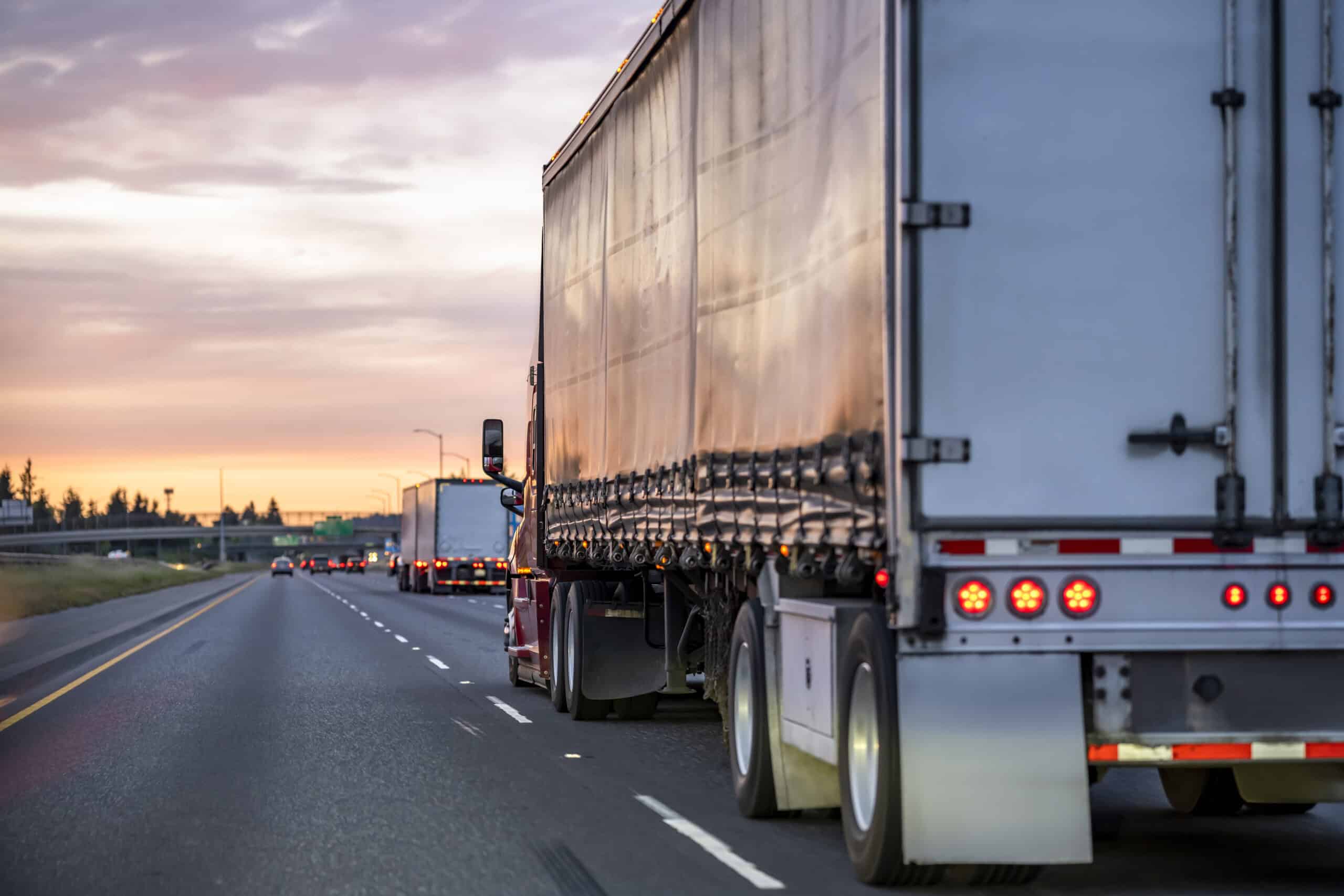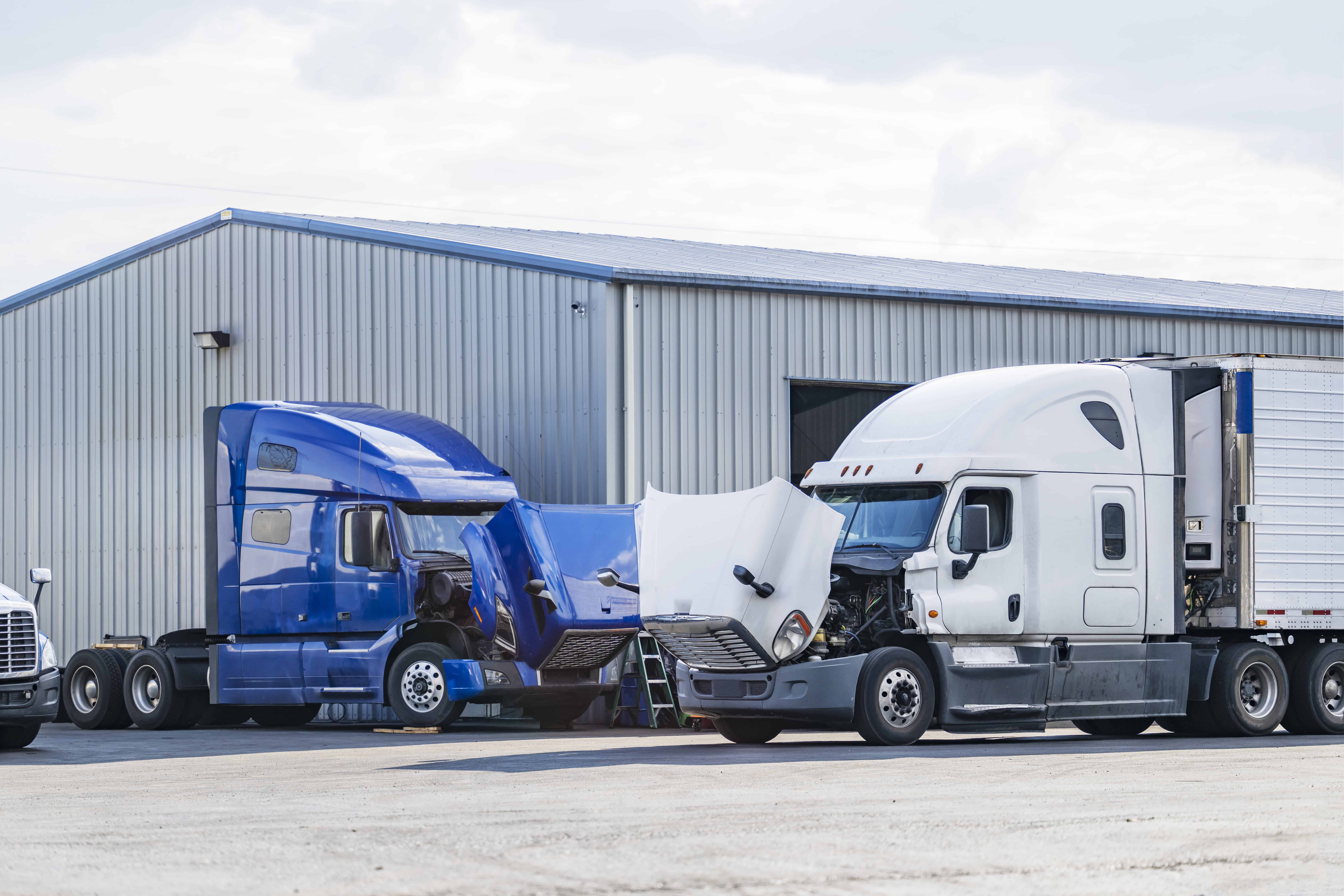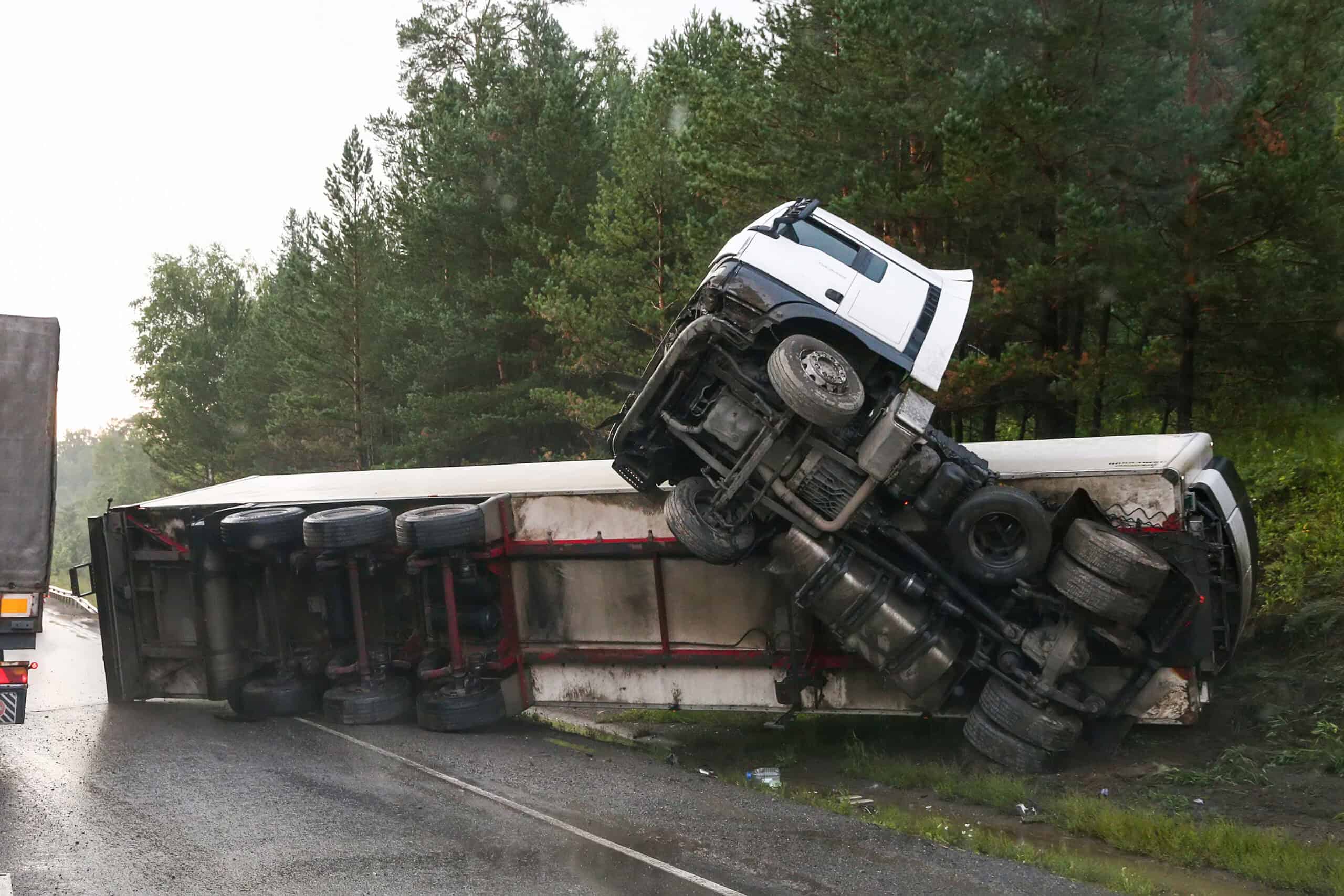Commercial Truck Insurance Requirements in Indiana
In Indiana, commercial trucking operations are required to adhere to both federal and state-level insurance requirements to ensure proper insurance coverage in the event of accidents, damages, or other liabilities. If you have been injured in a truck accident, the skilled truck accident lawyers at Doehrman Buba Ring are standing by. We understand how commercial truck insurance can impact your recovery of damages and can successfully maximize the compensation you receive for any truck accident injuries. Contact us for a free consultation today.

Primary Liability Insurance
The foundational commercial truck insurance requirement is primary liability insurance, which is mandatory for all commercial trucks operating within the state. The Indiana Department of Revenue compiled a Commercial Motor Vehicle Guide which explains that the minimum liability coverage required is $750,000 for vehicles carrying non-hazardous freight. However, trucks transporting hazardous materials must carry a minimum coverage of $1,000,000 to $5,000,000 in liability insurance, depending on the cargo’s nature. Additionally, truck drivers must file a Form E, Indiana insurance filing, which they can obtain from their insurance company to get a USDOT number or Indiana identification number.
General Liability Insurance
Beyond primary liability insurance, general liability insurance is another highly recommended insurance for a commercial trucking business in Indiana. This type of commercial truck insurance provides broader coverage, including protection against indirect or non-accident-related incidents. General liability insurance can cover legal fees, property damage, and medical payments that arise from daily operations but are not directly related to driving accidents. For instance, if a client sues your trucking company for a breach of contract or if someone is injured at your business premises, general liability insurance could offer crucial financial protection.
Cargo Insurance
Indiana mandates specific commercial truck insurance coverages such as cargo insurance, to protect against the loss or damage of goods in transit, and non-trucking liability insurance, which provides coverage when the truck is not under dispatch. Cargo insurance plays a critical role in commercial trucking, offering protection against the risks associated with the loss or damage of goods while they are being transported. This type of commercial truck insurance coverage is vital for ensuring financial security for both trucking companies and their clients, as it covers the cost of the cargo in the event that it is damaged, stolen, or lost during transit. The specific terms and coverage limits of cargo insurance can vary greatly, depending on the policy and the nature of the goods being transported. It’s imperative for trucking operations to carefully assess their cargo insurance needs to ensure they have adequate coverage, particularly when transporting high-value or sensitive items.
Non-Trucking Liability Insurance
Non-trucking liability insurance, also known as bobtail insurance, is essential coverage for independent operators and owner-operators in Indiana. This insurance is specifically designed to provide protection when the truck is not being used for business operations under dispatch – essentially, when it is not hauling cargo. Non-trucking liability insurance covers damages or injuries to third parties when the truck is used for personal driving, such as running errands or traveling between jobs without a trailer attached. It’s critical for truck operators to understand that non-trucking liability insurance does not replace primary liability insurance; instead, it serves as a supplementary coverage that fills the gaps when the commercial truck is not in service for business purposes.
Public Liability Insurance
Public liability insurance for commercial trucks in Indiana is a critical component of a comprehensive insurance portfolio. This insurance goes beyond the basic liability to cover bodily injury and property damage that occurs in the course of operating a commercial vehicle. For trucking companies, public liability insurance is essential to protect themselves from the financial risks associated with accidents that might not be fully covered under primary liability insurance.
In Indiana, while primary liability insurance addresses the minimum legal requirements, public liability insurance provides an additional layer of security by covering the costs associated with lawsuits or claims made by third parties. This can include legal expenses, settlements, and judgments awarded by courts. The exact requirements and recommended coverage limits can vary, depending on the size of the trucking operation and the nature of the goods transported. Trucking businesses should work closely with insurance professionals to assess their exposure to risk and ensure that their coverage is sufficient to protect against potential liabilities.

Underinsured Motorist Coverage for Trucks in Indiana
Underinsured Motorist Coverage (UIM) is an essential form of protection for commercial trucks operating in Indiana. This coverage steps in when an accident is caused by another driver who does not have sufficient insurance to cover the damages or bodily injuries they have caused. Given the high costs associated with commercial truck accidents, UIM coverage ensures that truckers and trucking companies are not left with significant financial burdens that cannot be recovered from the at-fault party’s insurance.
In Indiana, while not specifically mandated for commercial trucks, opting for UIM coverage is highly recommended due to the potential severity and expense of truck-related accidents. This coverage can be invaluable in scenarios where the at-fault driver’s liability limits are too low to cover the cost of damages to the commercial vehicle or injuries to the driver. It’s an important safeguard that complements the primary liability and cargo insurance policies, providing an additional layer of financial security and peace of mind for truck operators.
Physical Damage Insurance
Physical damage coverage is another indispensable layer of protection for commercial trucks in Indiana. This commercial truck insurance type covers the cost of repair or replacement for the insured vehicle if it’s damaged in an accident, regardless of who is at fault, as well as damage from non-collision incidents such as theft, vandalism, or natural disasters. The coverage is divided into two main components: collision coverage, which pays for damage resulting from a collision with another vehicle or object, and comprehensive coverage, which covers damage from almost all other risks.
Physical damage coverage ensures trucking companies can quickly recover from the financial impact of damage to their vehicles, ensuring operations can continue with minimal disruption. Given the substantial investment that commercial vehicles represent, this coverage is critical to protect the assets of the business. Trucking companies operating in Indiana should carefully evaluate their need for Physical Damage Insurance, considering factors like vehicle value, operating conditions, and existing financial resources. Consulting with an insurance professional can help determine the appropriate level of coverage to safeguard against potential losses.
Federal Motor Carrier Safety Administration and Its Insurance Filing Requirements
The Federal Motor Carrier Safety Administration (FMCSA) is the lead federal government agency that regulates and provides safety oversight of commercial motor vehicles. It plays a pivotal role in providing specific insurance requirements for the commercial trucking industry in the United States, including in Indiana. Among its many responsibilities, one of the key areas it oversees is the insurance filing requirements for commercial trucks. Under federal law, these requirements are designed to ensure that trucking companies maintain the necessary insurance coverage to protect the public and the goods they transport in the event of an accident or other loss.
Commercial trucking operations are mandated by the FMCSA to submit proof of insurance, demonstrating that they meet the minimum federal insurance requirement. This involves filing specific forms, such as the BMC-91 or BMC-91X, which verify that a trucking company has the requisite liability insurance coverage. The exact amount of insurance required can vary depending on the type of operation and the nature of the goods being hauled, with higher requirements for carriers transporting hazardous materials.
In addition to liability coverage, the FMCSA may also require filings for cargo insurance and bonds, depending on the nature of the trucking operation. For example, household goods movers and freight forwarders are subject to additional filing requirements beyond those of general freight carriers.
Failure to comply with the FMCSA’s insurance filing requirements can lead to severe penalties, including fines, suspension of operating authority, and in extreme cases, the revocation of the carrier’s license to operate. Therefore, it is crucial for commercial trucking companies in Indiana and across the United States to work closely with their insurance providers to ensure timely and accurate filings with the FMCSA, safeguarding their compliance and operational legitimacy.

Commercial Drivers License (CDL) Requirements for Truckers in Indiana
Obtaining a Commercial Drivers License (CDL) is a fundamental prerequisite for anyone looking to operate a commercial truck in Indiana. This license serves as proof that the holder has met specific standards of knowledge and skill to safely operate large commercial vehicles. The process of acquiring a CDL in Indiana involves several steps, including passing both written knowledge tests and a practical driving test. Additionally, applicants must have a clean driving record and pass a medical examination to ensure they are physically capable of handling the rigors of commercial truck driving.
Indiana classifies CDLs into three main categories based on the vehicle’s size, weight, and the type of cargo it transports:
- Class A CDL: Required for operating any combination of vehicles with a gross combination weight rating (GCWR) of 26,001 or more pounds, provided the towed vehicle is heavier than 10,000 pounds.
- Class B CDL: Needed for operating a single vehicle with a GVWR of 26,001 or more pounds, or any such vehicle towing a vehicle not heavier than 10,000 pounds.
- Class C CDL: Essential for operating a vehicle designed to transport 16 or more passengers (including the driver) or transporting hazardous materials in quantities requiring placards.
Prospective drivers should also be aware of various endorsements that can be added to their CDL, enabling them to drive specialized vehicles or transport specific types of cargo, such as hazardous materials or school buses. These endorsements often require additional testing.
Doerhman Buba Ring Has Extensive Experience for Commercial Truck Accident Victims
Doerhman Buba Ring, a nationally renowned truck accident law firm, brings extensive experience and a deep understanding of the complexities involved in truck accident cases. With a dedicated legal team that specializes in this area, we are adept at navigating the intricate regulations and laws governing commercial trucking in Indiana and nationwide. Our expertise encompasses not only the legal aspects including commercial trucking insurance requirements, but also the logistical and operational nuances of the trucking industry, allowing them to effectively represent victims of truck accidents. Our proficiency in handling cases involving commercial trucks makes them a formidable ally for those impacted by such accidents. Contact our offices today for a free consultation.



